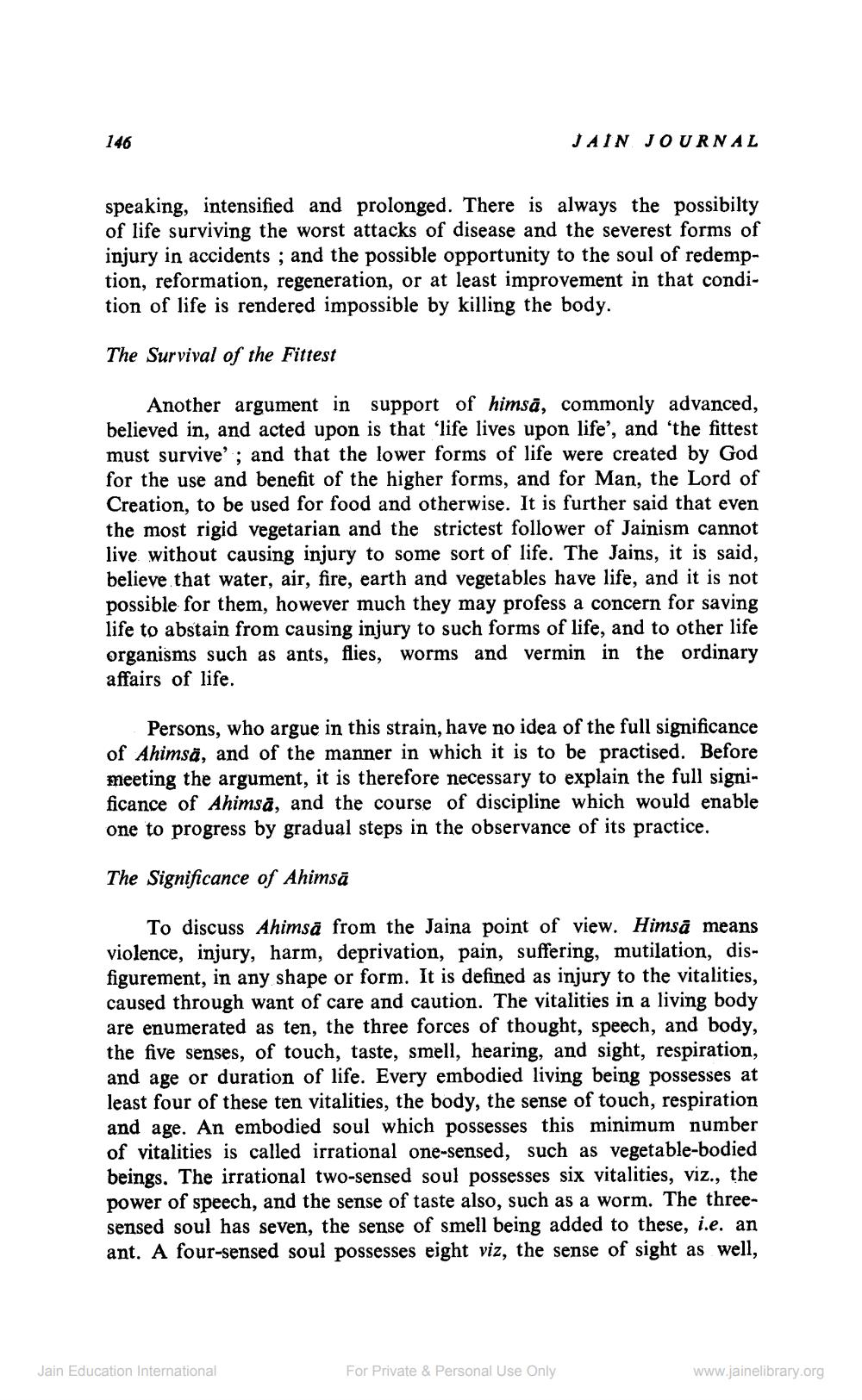________________
146
speaking, intensified and prolonged. There is always the possibilty of life surviving the worst attacks of disease and the severest forms of injury in accidents; and the possible opportunity to the soul of redemption, reformation, regeneration, or at least improvement in that condition of life is rendered impossible by killing the body.
The Survival of the Fittest
Another argument in support of himsa, commonly advanced, believed in, and acted upon is that 'life lives upon life', and 'the fittest must survive'; and that the lower forms of life were created by God for the use and benefit of the higher forms, and for Man, the Lord of Creation, to be used for food and otherwise. It is further said that even the most rigid vegetarian and the strictest follower of Jainism cannot live without causing injury to some sort of life. The Jains, it is said, believe that water, air, fire, earth and vegetables have life, and it is not possible for them, however much they may profess a concern for saving life to abstain from causing injury to such forms of life, and to other life organisms such as ants, flies, worms and vermin in the ordinary affairs of life.
JAIN JOURNAL
Persons, who argue in this strain, have no idea of the full significance of Ahimsä, and of the manner in which it is to be practised. Before meeting the argument, it is therefore necessary to explain the full significance of Ahimsa, and the course of discipline which would enable one to progress by gradual steps in the observance of its practice.
The Significance of Ahimsa
To discuss Ahimsa from the Jaina point of view. Himsă means violence, injury, harm, deprivation, pain, suffering, mutilation, disfigurement, in any shape or form. It is defined as injury to the vitalities, caused through want of care and caution. The vitalities in a living body are enumerated as ten, the three forces of thought, speech, and body, the five senses, of touch, taste, smell, hearing, and sight, respiration, and age or duration of life. Every embodied living being possesses at least four of these ten vitalities, the body, the sense of touch, respiration and age. An embodied soul which possesses this minimum number of vitalities is called irrational one-sensed, such as vegetable-bodied beings. The irrational two-sensed soul possesses six vitalities, viz., the power of speech, and the sense of taste also, such as a worm. The threesensed soul has seven, the sense of smell being added to these, i.e. an ant. A four-sensed soul possesses eight viz, the sense of sight as well,
Jain Education International
For Private & Personal Use Only
www.jainelibrary.org




